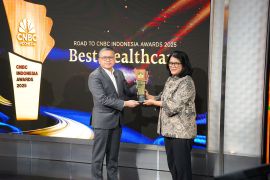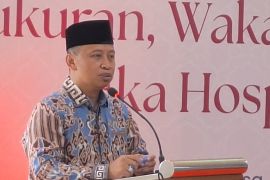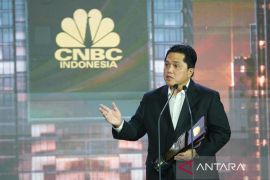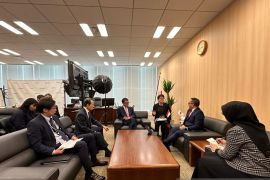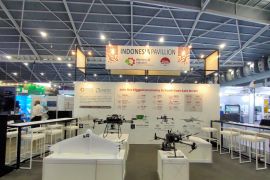Since members of the House of Representatives period 2014-2019 inaugurated, has emerged a variety of critics who doubt the performance of the new members of the House. In fact, although the current composition of the House of Representatives is dominated by 317 or 56% of new faces, and the DPD alone about 70% of new faces, does not necessarily arouse optimism expectations about parliamentary posture that can assure that its performance will be better than the previous period. When emerging parliamentarians derive from the highly liberal and transactional electoral mechanisms in an open proportional system amid the poor recruitment and regeneration system of political parties laden with kinship, oligarchic relationships and relying solely on popularity and transactional political costs. Under these circumstances would certainly be directly proportional to the characteristics and profiles of parliamentarians who would be dominated by carbitan politicians, poor attitude of statesmen and relying on popularity alone. The effect is of course on the weak performance of parliament due to the poor quality of MPs who occupy the seat of the House.
Concern about the quality and performance of this parliament is certainly reasonable if it is associated with previous period experience. In one aspect such as the performance of legislation, the House of Representatives for the period 2009-2014 according to the Formappi record can only complete 45% or 145 of the 247target Draft Act (RUU) into Law. Indeed, the productivity of the legislative function of establishing the Act is not the only measure to assess the performance and quality of parliament, there are other functions that are equally important to be assessed in terms of budgeting and political control over government control. The budget compiled by parliament as an authoritative allocation of values will reflect how its alignment, whether to increase access to the welfare of the community or even more in favor of the interests of capital and the apparatus of power alone ?. Similarly with the oversight power over government, is it intended to streamline the functions of checks and balances that reflect the aspirations of the community or the security of the group's narrow political interests?.
The productivity of legislative functions is often a measure because it involves a quantitatively quantifiable function and is compared between targets and realizations. However, it should be noted that in order not to get caught up in the technical issues of drafting the law, the evaluation of the quality of parliament in the implementation of the legislative function should be linked to the quality of the product of the Act in the perspective of Ideology and the Constitution of the state. This is important because the law is a reference for the power of government to carry out development agendas to realize national interests and goals, so that it should reflect the ideology and the Constitution of the state and does not end up in the hands of the Constitutional Court because it is sued by the community. Can not be separated from the spirit contained in the state ideology and constitution.
Need Balanced
The issue of the quality of parliament can not only be seen from the downstream, but it is also a problem upstream, namely how the political process in political parties recruit, cadre and nominate it in public positions. This upstream issue will continue on the mechanism of converting votes into power seats or called elections that adopt the most votes. Output is downstream, a select number of politicians will perform legislation, budgeting and supervision functions. If the upstream issue is not corrected, it will certainly impact on the downstream that ultimately determines the poor performance of the House. Elected members of the House who have no experience and briefing from political parties, so serving will only have the opportunity to follow a brief orientation of their function duties only, and it will be assumed then that all these elected politicians are considered competent to perform their roles as representatives of the people.
In such circumstances, MPs have to deal with the real facts of political rivalry between the interests and ideals of each political party, the fragmentation between the authorities and opposition, as well as interaction with the various interest groups. In the midst of this situation, these MPs not only carried out their three important functions, but also implemented the mandate of Law no. 17 Year 2014 on the MPR, DPR, DPD and DPRD (Act MD3) to absorb the aspirations of the community, assessing the state administration and promotion of the four pillars of the nation and state, the Pancasila as the state ideology of the 1945 Constitution states, the Republic of Indonesia as a result of MPR decree on form State and Bhineka Tunggal Ika as the motto of the state.
Members of Parliament who also serves as a member of the Assembly to become agents of socialization ideology and constitution negara. Fungsi transformation of Pancasila as the state ideology in the New Order era is the government's duty now taken over his role by parlement. If New Order through upgrading pattern P4 BP7 with more emphasis on the function of indoctrination politics, now the parliament through the four pillars of socialization program of indoctrination into diseminasi. Meski changing patterns occur in different patterns, but both have a common target, ie society as an object of political ideology. The question is, who will then perform the function of transformation, whether in the form of indoctrination, dissemination or whatever title in the institution of power at the state level, including the parliament itself ?.
How could those who are in the country's political superstructure to become agents of ideology while they are not necessarily experience the process of internalization of values and spirit that exists in Pancasila and the 1945 Constitution? The question becomes reasonable because it is well known, there are many forums or mechanisms that facilitate the transformation agenda of the state ideology For the candidates and members of parliament itself. Especially if it is associated with the emergence of the product laws and policies that are considered contrary to Pancasila and the 1945 Constitution.
The agenda to transform the values and spirit of Pancasila and the 1945 Constitution to parliament, both individually and institutionally, should be balanced with the agenda of socializing the four pillars of national and state life to the people. Parliament is an upstream of state policy, and will determine the black and white travel of a country. Ignoring the importance of building human resources in a qualified parliament is the same as handing the future of the nation and state to uncertainty. Quality parliaments are not only quantitatively measured from the performance of their duties and functions, but also qualitatively and substantively by referring to the values and spirit contained in Pancasila and the 1945 Constitution. They may have individual qualifications and skills in a particular field, but does it also Supported by a strong understanding and belief in the ideology of the state?. Therefore, the conception of the quality of human resources of Parliament members should also question about the extent of the internalization of state ideology.
Becoming Character and Behavior of Parliament
Parliament is the arena of contestation of political interests among various political forces who want to take a decisive role in the direction of state policy. Political powers are not only elements of domestic politics, but also various foreign political agenda and political powers that concerned to Indonesia.Agenda and interests of sectorial strength, domestic politics whether political parties, government, or political groups in society can be a challenge for achieving national goals and goals. In addition, foreign interests in Indonesian political history are often inconsistent with national interests. Experience has shown how foreign interests operate within the level of drafting and enforcement of laws and government policies. The main objective is to ensure a friendly and accommodative regulatory framework for operating its interests in Indonesia. It is in this situation that parliament is the target of penetration operations for the operators of interests, including foreign interests.
The transformation of Pancasila and the 1945 Constitution in parliament should be a systematic, institutionalized and prioritized agenda. The existence of MPR Socialization Body which has been tasked to socialize four pillars to the public should be developed to take a role in the framework of transforming Pancasila and the 1945 Constitution intensively. Similarly, the establishment of the Pancasila Ideology Stabilization Unit which has been issued by the Presidential Decree to take part in the upstream sector by developing cooperation with political parties to transform Pancasila and the 1945 Constitution in the recruitment and regeneration of legislative candidates and public officials. This is important because our political system has placed political parties as the main source of recruitment of the state's political superstructure, especially public and legislative posts.
Pancasila as the ideology of the state is fundamental staatfundamental norm or basic norms that become the soul of the 1945 Constitution as the state constitution, while the 1945 Constitution is a reference to the rules and regulations under it. The transformation of Pancasila and the 1945 Constitution to parliament is an agenda of changing, directing and shaping the character, character and political behavior of parliamentarians that are aligned and imbued with the spirit and values in Pancasila and the 1945 Constitution. This transformation is expected not only to shape the character and behavior of power, But can also be an ideological filter and counter foreign interests that are not in line with the ideology and constitution of the state.
The output of the transformation of Pancasila and the 1945 Constitution in the future is that no more laws are sued to the Constitutional Court because it is against the Pancasila and the 1945 Constitution, there is no longer any policy or law that is more pro-foreign and harms national interests. Spirit in Pancasila and the 1945 Constitution will also become the moral and ethical standard for the behavior of each individual MPs. So no more stories of abuse of power, budget corruption and lax lawmakers convene because they are busy with personal affairs and party. In addition, the next parliament would be expected to be more effective as a tool for the people to articulate his political aspirations in the agenda of power. Thus, a qualified parliament of understanding is no longer limited to a collection of politicians who can effectively carry out their duties and functions, but also a collection of representative politicians who understand the ideological mandate that must be exercised in guarding the state power to its national goals and ideals based on Pancasila and the 1945 Constitution.
*) Senior researcher at Strategic Assessment, Jakarta.
Transformation of Pancasila Values and the 1945 Constitution in order to Achieve Best Quality of Parliament
Sabtu, 12 Agustus 2017 19:49 WIB
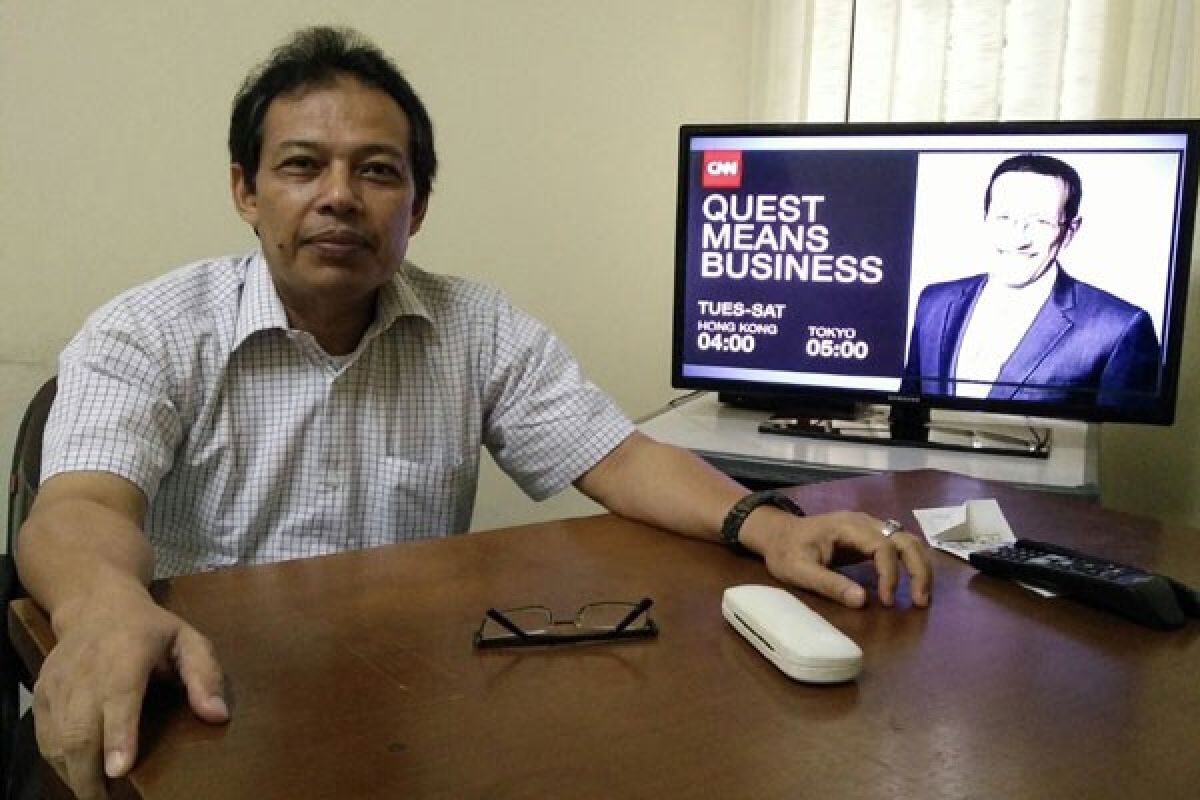
Wildan Nasution. (ANTARA FOTO/Dokumentasi-Pribadi/Dok).
Spirit in Pancasila and the 1945 Constitution will also become the moral and ethical standard for the behavior of each individual MPs.


